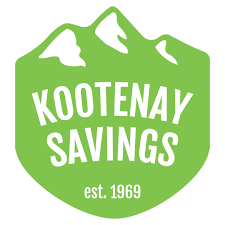Bridging Rural Homelessness and Well-being: A Sustainable and Collaborative Regional Response is a three-year social innovation project that started in fall 2022. The overall goal of the project is to improve the well-being of rural residents experiencing or at risk of homelessness living in and around the rural communities of Nelson, Castlegar and Trail in the West Kootenay region.
Faculty Researcher Jayme Jones Describes the Project
The project is funded through the Social Sciences and Humanities Research Council of Canada and Mitacs, with cash and in-kind contributions from community partners.
Get Project Updates
Please join the project mailing list to receive occasional updates.
Improving Well-being
Social service organizations in the region indicate the incidence of homelessness is on the rise. The colliding crises (housing, overdose/toxic drugs, pandemic and extreme weather), and the mobility of the target population between communities, introduce complexities that require an innovative and collaborative regional response to support this marginalized population. Social service organizations in the region, like other rural regions, have low capacity and fragmented geographies. While some organizations supporting the vulnerable population are regional and work across communities, many services provided are community specific and have limited resources. There is a lack of consistency of available programming across communities and limited communication between communities. As a result, there are gaps in consistent, coordinated, and easily accessible support services.
The project uses participatory action research methodology. The diverse community partners are active participants, helping to shape the project, and the research supports action. The project participants include people with lived or living experience of homelessness, local governments, social service organizations, community organizations, Selkirk College students and faculty, and other post-secondary institutions. This broad participation provides an innovative collaboration between organizations and communities to transfer lessons, avoid duplication, make best use of limited resources and experiment with regional solutions as conditions evolve.
The project aims to:
- Conduct research for evidence-based decision-making.
- Strengthen relationships for sustainable regional collaboration and response actions.
- Build regional homelessness response capacity by mobilizing college resources (faculty and students).
- Disseminate lessons learned in the region and beyond.
The expected benefits of this project are improved well-being for those experiencing homelessness due to coordinated regional actions that respond to their evolving needs; sustainable and optimized service delivery by service organizations due to strengthened relationships, coordination and data-informed decisions; and increased community service-learning opportunities for students. One specific example of a benefit from this project is year-round street outreach by Selkirk College nursing and social work students over the next three years.
Resources
West Kootenay Homelessness Response Summits
2025
2024
2023
- Summit summary
- Video: It Takes a Village
- Interview: Kootenay Co-op Radio
Well-Being Insights and Knowledge Briefs
- Technical report: 2024 Well-being Insights: Community Perceptions of Homelessness & Related Service Provision
- Survey summary: 2024 Well-being Insights: Community Perceptions of Homelessness & Related Service Provision
- Full report: 2023 Well-being Insights: Voices of West Kootenay Service Users and Service Providers
- Knowledge brief: Everybody Poops: Public Toilets are a Community Issue
Student Research
2025
- Rural Homelessness 2025 Student Outreach Insights
- Building Belonging: A Community Guide for Supporting Vulnerable Residents in Castlegar
- A Deliberative Dialogue Approach to Addressing Homelessness in the West Kootenays
2024
2023
- Creative Effects Towards Destigmatization
- Spatial Analysis of Rural Homelessness Support Services in the West Kootenay Region
- Community Perceptions of the Trail Homeless Population
2022
Other Resources
- Homeless Hub: Canadian Definition of Homelessness
- Visions Journal: Bridging Rural Homelessness and Well-being: A Sustainable, Collaborative Response in the West Kootenays
- Coordinated Access Hub Assessment
- Rural Homelessness and COVID-19: Outreach Survey Results'
- Addressing Vaccine Hesitancy on the Front Lines: Information about COVID-19 Vaccines for Social Service Providers Working with People Experiencing Homelessness in the West Kootenay Region
Selkirk College project team
Jayme Jones
Project Director & Researcher, Selkirk Innovates
Leeza Perehudoff
Research Assistant, Selkirk Innovates
Jennifer Preston
Outreach Team Lead, School of Health & Human Services
Amber Streukens
Lived-Experience Co-Researcher
Matthew Wheating
Lived-Experience Co-Researcher
Grace Cline
Outreach Intern
Alicia Pongracz
Outreach Intern
Past Team Members
Jennifer Reid
Researcher, School of Health & Human Services
Rob Tanner
Researcher, School of Health & Human Services
Amanda Sigurdson
Outreach Team Lead, School of Health & Human Services
Zakeea Al Hanafy
Outreach Intern
Jennifer Arrowsmith
Intern
Brina Bowen
Practicum Student
Pier Briggeman
Outreach Intern
Mackenzie Fernquist-Kostensiuk
Outreach Intern
Christina Wahlers
Outreach Intern
Community partners
- Anglican Parish of Kokanee (Nelson, Kaslo & North Shore)
- ANKORS
- BC Housing
- Career Development Services - Trail
- Castlegar and District Community Service Society
- Castlegar Integrated Services Collaborative
- Circle of Indigenous Nations Society (COINS)
- City of Castlegar
- City of Nelson
- City of Trail
- Castlegar Community Harvest Food Bank
- Interior Health Authority
- Kootenay Boundary Community Services Co-operative (The Koop)
- Kootenay Career and Development Society
- Kootenay Savings Credit Union
- Ministry of Social Development and Poverty Reduction
- Navigation Table - Trail & Area
- Nelson CARES
- Nelson Committee on Homelessness
- Nelson Community Services
- Okanagan College
- Rural Empowered Drug Users Network (REDUN)
- Regional District of Central Kootenay
- Regional District of Kootenay Boundary
- Trail Community Action Team
- Trail FAIR
- Trail Skills Centre
- Trail United Church
…with more partners still signing on.
If your organization would like to join, please contact Jayme Jones.
Funders
Donors
We graciously thank our donors.
- Rossland Healthcare Auxiliary







